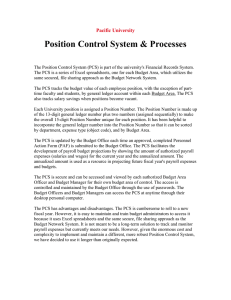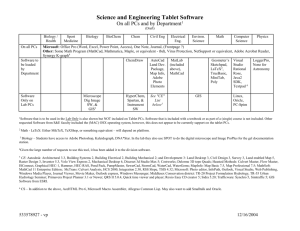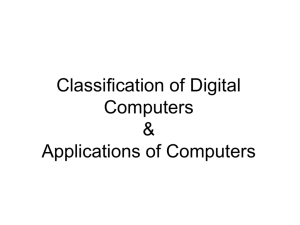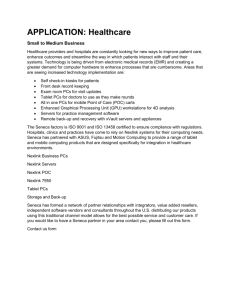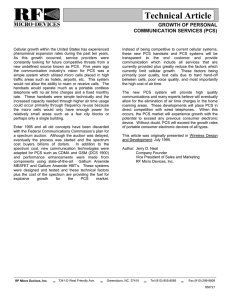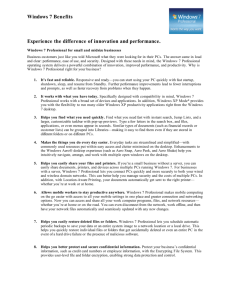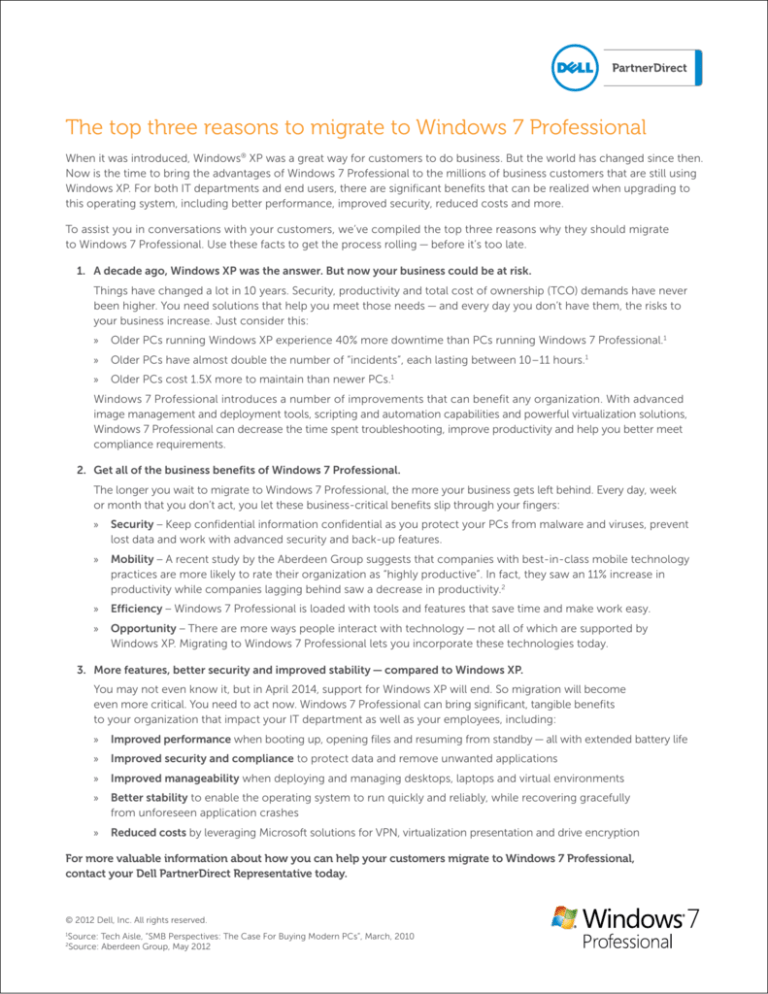
The top three reasons to migrate to Windows 7 Professional
When it was introduced, Windows® XP was a great way for customers to do business. But the world has changed since then.
Now is the time to bring the advantages of Windows 7 Professional to the millions of business customers that are still using
Windows XP. For both IT departments and end users, there are significant benefits that can be realized when upgrading to
this operating system, including better performance, improved security, reduced costs and more.
To assist you in conversations with your customers, we’ve compiled the top three reasons why they should migrate
to Windows 7 Professional. Use these facts to get the process rolling — before it’s too late.
1. A decade ago, Windows XP was the answer. But now your business could be at risk.
Things have changed a lot in 10 years. Security, productivity and total cost of ownership (TCO) demands have never
been higher. You need solutions that help you meet those needs — and every day you don’t have them, the risks to
your business increase. Just consider this:
»» Older PCs running Windows XP experience 40% more downtime than PCs running Windows 7 Professional.1
»» Older PCs have almost double the number of “incidents”, each lasting between 10–11 hours.1
»» Older PCs cost 1.5X more to maintain than newer PCs.1
Windows 7 Professional introduces a number of improvements that can benefit any organization. With advanced
image management and deployment tools, scripting and automation capabilities and powerful virtualization solutions,
Windows 7 Professional can decrease the time spent troubleshooting, improve productivity and help you better meet
compliance requirements.
2. Get all of the business benefits of Windows 7 Professional.
The longer you wait to migrate to Windows 7 Professional, the more your business gets left behind. Every day, week
or month that you don’t act, you let these business-critical benefits slip through your fingers:
»» S
ecurity – Keep confidential information confidential as you protect your PCs from malware and viruses, prevent
lost data and work with advanced security and back-up features.
»» M
obility – A recent study by the Aberdeen Group suggests that companies with best-in-class mobile technology
practices are more likely to rate their organization as “highly productive”. In fact, they saw an 11% increase in
productivity while companies lagging behind saw a decrease in productivity.2
»» Efficiency – Windows 7 Professional is loaded with tools and features that save time and make work easy.
»» O
pportunity – There are more ways people interact with technology — not all of which are supported by
Windows XP. Migrating to Windows 7 Professional lets you incorporate these technologies today.
3. More features, better security and improved stability — compared to Windows XP.
You may not even know it, but in April 2014, support for Windows XP will end. So migration will become
even more critical. You need to act now. Windows 7 Professional can bring significant, tangible benefits
to your organization that impact your IT department as well as your employees, including:
»» Improved performance when booting up, opening files and resuming from standby — all with extended battery life
»» Improved security and compliance to protect data and remove unwanted applications
»» Improved manageability when deploying and managing desktops, laptops and virtual environments
»» Better stability to enable the operating system to run quickly and reliably, while recovering gracefully
from unforeseen application crashes
»» Reduced costs by leveraging Microsoft solutions for VPN, virtualization presentation and drive encryption
For more valuable information about how you can help your customers migrate to Windows 7 Professional,
contact your Dell PartnerDirect Representative today.
© 2012 Dell, Inc. All rights reserved.
Source: Tech Aisle, “SMB Perspectives: The Case For Buying Modern PCs”, March, 2010
Source: Aberdeen Group, May 2012
1
2



